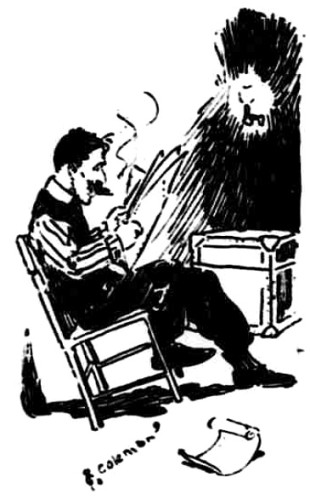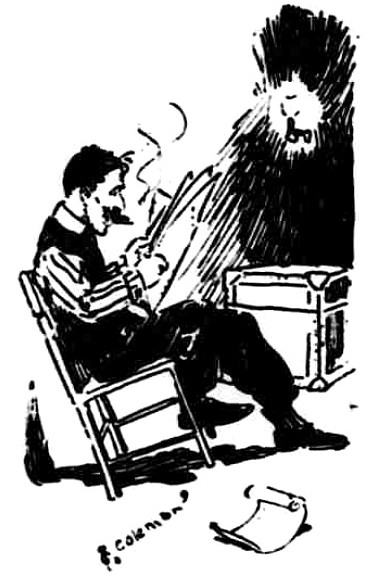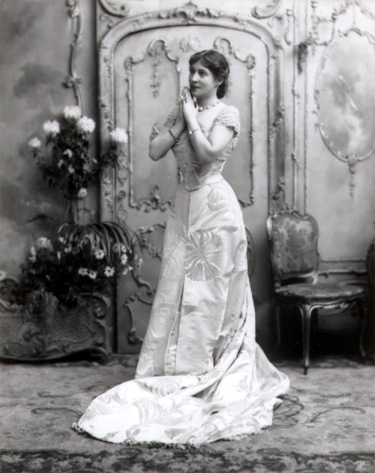The following is the second excerpt of an article which first appeared in 1905 in the St. Louis Republic. You can read the first part here:
When the leading woman swooned at the sight of the tragic and thrilling vision she would have had a bitter bump on the hard floor had not the property man thoughtfully supplied an upholstered divan at the exact spot, and thereby broke the fall and saved the dramatic situation.
After all is said and done the property man is “it.”
The ordinary theatrical programme carries on the first page of the bill of the play the cast of characters in which the principals see their names in the largest letters, which do not interfere with the typographical make-up of the folder. After the synopsis and the lesser details, in these days so necessary to the proper enjoyment of the drama, musical comedy and other what nots of the theatrical world, one comes across a list of officials which is seldom perused were it not interspersed with stereotyped humor. This list embraces the persons who have made possible the evening’s pleasure to the spectator.
The stage manager and the assistant stage manager come first, since it is their executive management which directs the efforts of everyone else. Frequently are found the stage carpenter, who is responsible for the scenery and stage settings, and the electrician, who handles the light effects and transforms noontide to twilight and black to dawn without batting an eye.
The mistress of wardrobes, who checks up the gauzy gowns of a half hundred coryphées, or who bosses the packing of the Gainsborough hats of a handsome bunch of show girls, at times sees her name among those of the executive staff. The head usher is never missing, and there have been instances where the head bill poster has been enumerated. The piano that was used and the maker of the gowns worn by the principal women of the cast is sure to be found.
But when one cares to know who has made the show what it is, the name is usually missing from the rolls, and back through the stage entrance he must go and around corners of scenery and through crowds of supes until he reaches the den of the property man. Then, indeed, has he come to the beating heart of the production.

When the modern comic opera, drama or extravaganza is being prepared for its initial performance, the first man to get a copy of the lines and an idea of the theme of the play is the property man. After the playwright has finished the book and the librettist has turned out the tuneful melodies, all of which comes after the financial backer has set his official seal of approval upon everything that has been done, the property man is taken into the consideration, and while the manager is jaggling over contracts with his stars and secondary representatives are looking up available timber for the lesser parts, the property man is skirmishing the city and country over seeking for those little essentials without which the scenery might as well not be painted and the performers, as in the old Shakespearean days, would as well perform in ordinary street costume.
Originally published in The St. Louis Republic, January 1, 1905.


